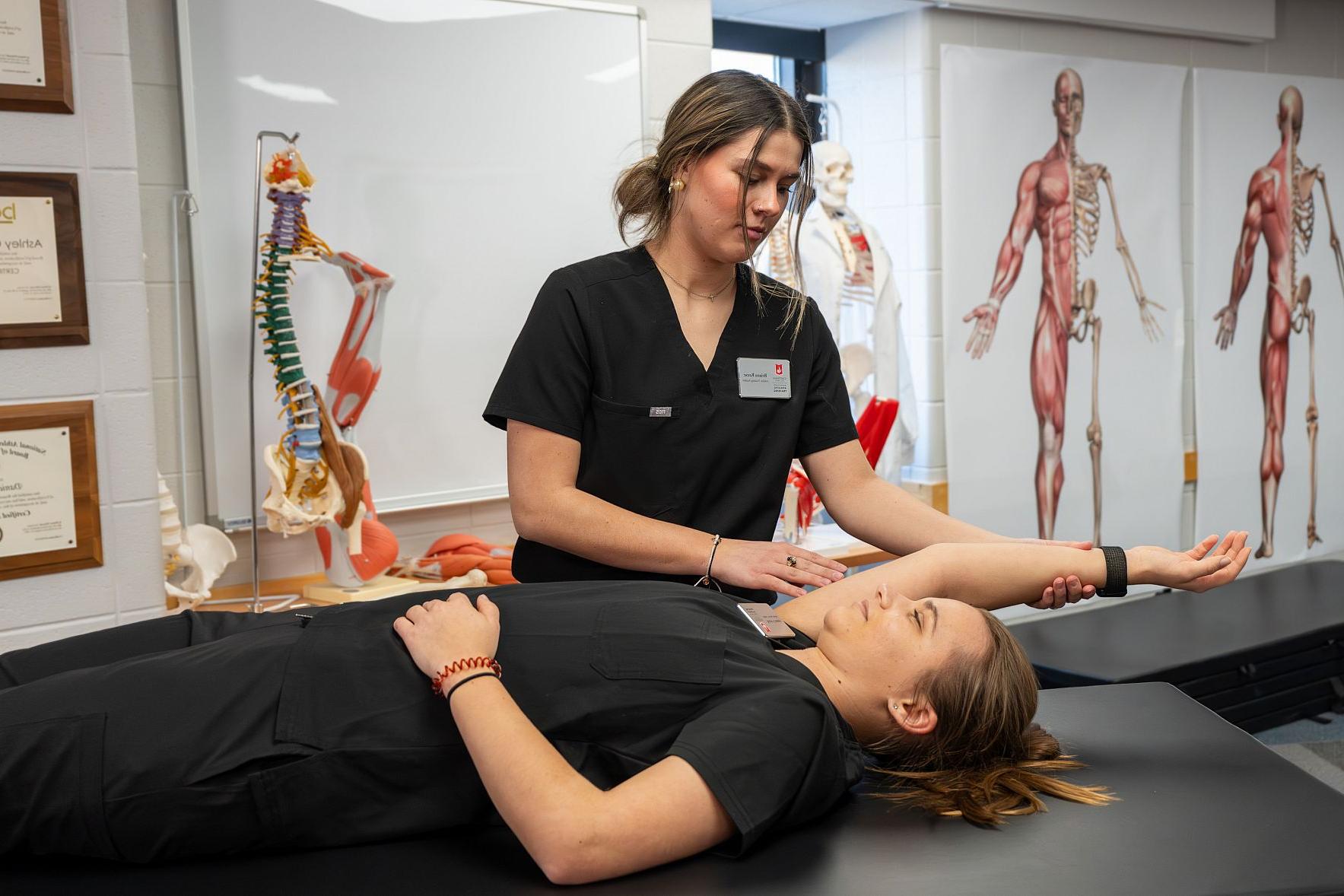Athletic Training Admissions Requirements
How to Apply
The mission of this program is to prepare students for licensure and certification by developing academic competence, evidence-based practice, and clinical reasoning skills through a sequence of didactic, laboratory, and clinical experiences. The program begins in July(Summer II) and lasts 21 months providing 65 credits of coursework. Summer break occurs during June and early July. The cohort size is limited to 14 students.
Admissions Requirements
- Bachelor’s degree in related fields (allied health, biology, exercise and sport science, kinesiology)
- GRE is not required
- Recommended cumulative GPA of 3.0/4.0. Consideration is given to students with a cumulative GPA of 2.75-2.99/4.0.
- Completion of prerequisite courses with a minimum grade of “C”. All courses must have a letter grade. Completion of prerequisite courses must have been completed within the past six years
- Three letters of recommendation (one from an Athletic Trainer; one from faculty or work supervisor)
- 20 hours of athletic training observation
- Personal Statement
- Acceptance into the Carthage College Graduate School
- Technical Standards, Criminal Background Check, Immunization, Drug Panel (completed after program acceptance)
Apply now through THE ATCAS WEBSITE!
Please note: By clicking on the “Apply Now” button above, you will be redirected to the ATCAS centralized application system. Please follow the prompts to apply to Carthage.
Technical Standards for Admission
The abilities and expectations listed below must be met by all students admitted to the program. In the event a student is unable to fulfill these technical standards, with or without reasonable accommodation, the student will not be admitted into the program. Compliance with the program’s technical standards does not guarantee a student’s eligibility for the BOC certification exam.
CANDIDATES FOR SELECTION TO THE PROGRAM MUST DEMONSTRATE:
- The mental capacity to assimilate, analyze, synthesize, and integrate concepts to problem solve, formulate assessment and therapeutic judgments, and distinguish deviations from the norm.
- Sufficient postural and neuromuscular control, sensory function, and coordination to perform appropriate physical examinations using accepted techniques; and to accurately, safely, and efficiently use equipment and materials during the assessment and treatment of patients.
- The ability to effectively communicate with patients and colleagues, and to show sensitivity to individuals from different cultural and social backgrounds; to effectively communicate judgments and treatment information; and to understand and speak the English language at a level consistent with competent professional practice.
- The ability to clearly and accurately record the physical examination results and a treatment plan.
- The capacity to maintain composure and continue to function well during periods of high stress.
- The perseverance, diligence, and commitment to complete the athletic training education program as outlined and sequenced.
- The flexibility and ability to adjust changing situations and uncertainty in clinical situations.
- Affective skills, appropriate demeanor, and rapport that relate to professional education and quality patient care.
Candidates for selection to the program will be required to verify that they understand and meet these technical standards, or that they believe that, with certain accommodations, they can meet the standards.
Students with disabilities who request accommodations to meet the program standards must provide the program director with documentation appropriate to the condition from an appropriate authority. The program director will have the Learning Accessibility Services personnel evaluate documentation and determine whether the stated condition qualifies as a disability. The Learning Accessibility Services personnel together with the program director will determine what appropriate accommodations will be provided to a student so that they can meet the program’s technical standards.

